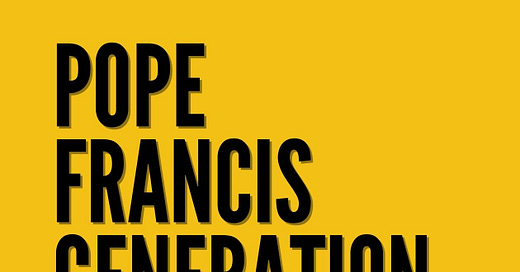As I’ve shared before, I’m currently in a Masters in Clinical Mental Health Counseling program. My long-term goals as a counselor are to provide pastoral counseling for Catholics who have been spiritually abused, counseling for Catholic ministers, and counseling formation for ministers so that they are more equipped to help others in their ministry.
I want to talk about that third goal and share a couple of values from the counseling profession that I hope to help integrate into pastoral ministry in the Church. Over the past year, two specific ideas have risen to the surface that I believe are important for ministers: unconditional positive regard and the responsibility that comes with power.
I’m going to focus this article on the former, then later this week I’ll write about power and responsibility.
I’ve found a tremendous amount of overlap between psychology and Catholic Tradition. This shouldn’t be surprising since God reveals himself through the natural world as well as through Scripture and Tradition. And Catholicism, when it’s at its best, does not put itself in opposition to scientific research.
In particular, there's a proposal by the psychologist Carl Rogers that resonates deeply with the Catholic understanding of the human person. Rogers, in his person-centered theory of counseling, proposed that simply being with another person who is genuine, listens to you, values you, empathizes with you, and shows you unconditional positive regard is in itself healing regardless of any techniques used. He called this the "therapeutic core conditions" (and there's a tremendous amount of evidence that supports his conclusions).
In other words, simply being in communion with another person who listens to you without their own agenda, who shows you that they understand your feelings, and who unconditionally accepts you as you are, actually changes you for the better.
Rogers says that this is because human persons are naturally oriented toward self-actualization like a seed is naturally oriented to becoming a tree, and all a person needs is the right environment (these core conditions) in order to grow toward their natural end.
The proposal that every person has an end toward which they are oriented relates very closely to the teleology of natural law theory. And the practical conclusion of that teleology is that the role of the counselor isn't to judge or impose values. Rather there's a profound trust that just by providing the right environment, a person will come to self-awareness of their own harmful behavior, of the ways in which they have drifted from their end or goal.
Rogers doesn't use the word "conscience," but that's what comes to mind for me here. The Church has a profound degree of trust in every individual’s conscience to direct them towards the good, the true, and the beautiful—towards God.
There’s something really compelling about the proposal that unconditionally loving someone helps make them capable of becoming aware of and changing their negative behavior. And if being unconditionally loved by another human being is itself healing, then how much more healing is experiencing the unconditional love of God?
Last December, in his apostolic letter about Saint Joseph, Patris Corde, Pope Francis described the way that God loves us. The pope said:
“Chastity is freedom from possessiveness in every sphere of one’s life. Only when love is chaste, is it truly love. A possessive love ultimately becomes dangerous: it imprisons, constricts and makes for misery. God himself loved humanity with a chaste love; he left us free even to go astray and set ourselves against him. The logic of love is always the logic of freedom, and Joseph knew how to love with extraordinary freedom.”
God has no agenda when he loves me. He puts no conditions on his love. He accepts my experiences, thoughts, and feelings as my own. He does not necessarily approve of them, but he does not expect me to have my life put together in order for him to love me. He respects my freedom, even when I use my freedom in a way that harms myself and others.
If these proposals are true, then I think we need to question some of the ways that Catholics minister to others. Do we feel the need to tell others The Truth when they do something wrong? Do we think we need to cut loved ones out of our lives if they are in relationships we believe are immoral? Do we make our acceptance of others conditional on their behavior?
I believe this is the rigidity or legalism that Pope Francis regularly criticizes. It puts ideas or laws before real people. If we do not offer unconditional love first, then moral and religious obligations can simply become clubs that we use to beat people over the head with.




Thank you for this, Paul! This is a message that was pretty much missing from my upbringing. Judging people without showing them steadfast love is a recipe for people leaving the church in droves.